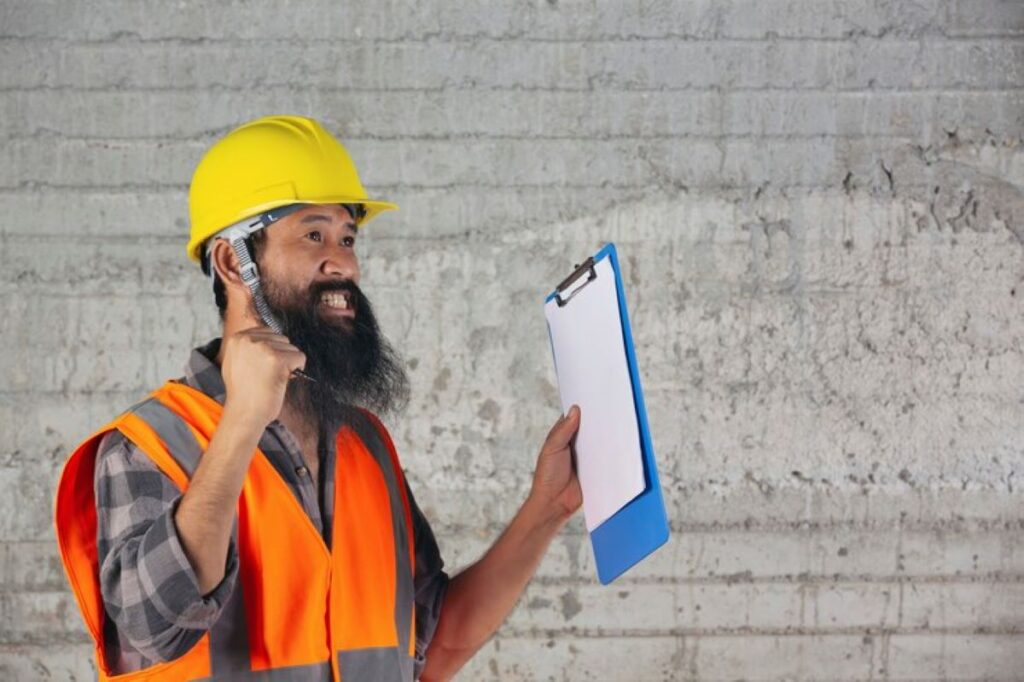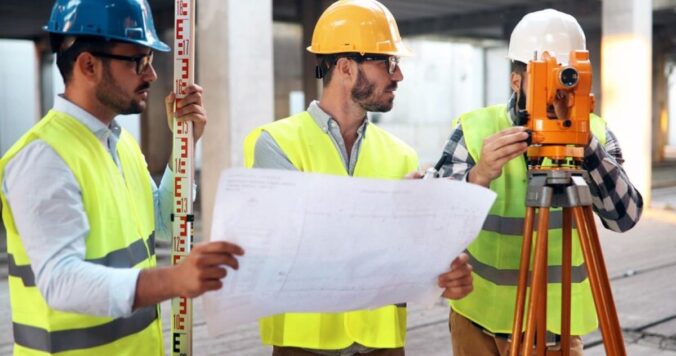In the construction industry, time is money. Delays and cost overruns can significantly impact project viability, leading to financial losses and strained relationships among stakeholders. Construction surveyors play a pivotal role in mitigating these risks, ensuring that projects are completed on time and within budget. This article explores the various strategies employed by construction surveyors to minimise delays and cost overruns, highlighting their importance in the construction process.
The Role of Construction Surveyors
Construction surveyors are professionals who specialise in measuring and mapping land, as well as overseeing the construction process to ensure compliance with regulations and specifications. Their expertise is crucial throughout various stages of a project, from initial planning to final completion. By providing accurate data and insights, they help stakeholders make informed decisions that can prevent costly mistakes.
Key Responsibilities
One of the primary responsibilities of construction surveyors is to conduct site surveys. This involves measuring land and analysing topographical features to determine the best approach for construction. Accurate surveys can identify potential issues early on, such as land instability or environmental concerns, allowing for proactive measures to be taken.
Additionally, construction surveyors are responsible for monitoring the progress of a project. They ensure that construction adheres to the approved plans and specifications, checking for compliance with local regulations. This oversight helps to catch any deviations from the plan before they escalate into larger problems, which could lead to delays and increased costs.
Moreover, construction surveyors utilise advanced technology and equipment, such as GPS and laser scanning, to enhance the precision of their measurements. This technological integration not only improves the accuracy of the data collected but also streamlines the surveying process, allowing for quicker turnaround times on projects. As construction techniques evolve, surveyors must stay abreast of the latest advancements in technology to maintain their competitive edge and provide the best service possible.
Collaboration with Stakeholders
Effective communication and collaboration with various stakeholders are essential for construction surveyors. They work closely with architects, engineers, contractors, and clients to ensure that everyone is on the same page regarding project goals and timelines. By fostering a collaborative environment, surveyors can help to identify potential issues early and develop solutions that satisfy all parties involved.
In addition to collaboration, construction surveyors often play a pivotal role in negotiating and mediating between different parties. Their impartial expertise enables them to provide objective assessments that can help resolve disputes or misunderstandings that may arise during the construction process. This mediation is particularly valuable in complex projects where multiple stakeholders have differing priorities and expectations, ensuring that the project remains on track and within budget.
Strategies for Minimising Delays
Delays in construction projects can arise from a multitude of factors, including unforeseen site conditions, design changes, and weather disruptions. Construction surveyors implement several strategies to minimise these delays and keep projects on track.
Thorough Planning and Preparation
One of the most effective ways to minimise delays is through thorough planning and preparation. Construction surveyors conduct comprehensive site assessments and feasibility studies before the commencement of any project. This groundwork allows them to identify potential challenges and develop contingency plans to address them.
Moreover, by utilising advanced technology such as Geographic Information Systems (GIS) and 3D modelling, surveyors can create detailed project plans that account for various scenarios. This level of preparation significantly reduces the likelihood of unexpected delays during the construction phase. In addition, engaging with local authorities and stakeholders early in the planning process can help to streamline approvals and ensure that all necessary permits are obtained without unnecessary holdups. This collaborative approach not only fosters goodwill but also enhances the overall efficiency of the project.
Regular Monitoring and Reporting
Continuous monitoring of construction progress is crucial for identifying potential delays early on. Construction surveyors employ various tools and techniques to track the progress of work against the project schedule. Regular reporting allows stakeholders to stay informed about the project’s status and any emerging issues.
By maintaining an open line of communication and providing timely updates, surveyors can facilitate prompt decision-making, ensuring that any necessary adjustments are made quickly to avoid further delays. Furthermore, the integration of real-time data analytics into monitoring processes allows for a more dynamic response to challenges as they arise. This capability not only enhances transparency but also empowers project managers to make informed decisions based on current conditions, thereby minimising the risk of cascading delays.
Effective Risk Management
Risk management is another critical aspect of minimising delays. Construction surveyors assess potential risks associated with a project, such as environmental factors, regulatory changes, and resource availability. By identifying these risks early, they can develop strategies to mitigate them, reducing the likelihood of delays.
Additionally, surveyors often conduct risk assessments at various stages of the project, allowing for ongoing evaluation and adjustment of risk management strategies as needed. This proactive approach helps to keep projects on schedule and within budget. Furthermore, fostering a culture of risk awareness among all team members can significantly enhance the project’s resilience. Training sessions and workshops aimed at educating staff about potential risks and their impacts can empower individuals to take ownership of their roles in risk management, ultimately contributing to a smoother construction process and minimising disruptions.

Strategies for Controlling Costs
Cost overruns can be detrimental to construction projects, leading to financial strain and potential project abandonment. Construction surveyors implement various strategies to control costs and ensure that projects remain financially viable.
Accurate Cost Estimation
Accurate cost estimation is essential for preventing budget overruns. Construction surveyors utilise their expertise to develop precise cost estimates based on detailed site assessments and project specifications. By considering all potential costs, including materials, labour, and equipment, they provide stakeholders with a realistic budget that reflects the project’s true financial requirements.
Moreover, by incorporating contingency allowances for unforeseen expenses, surveyors can help to cushion the financial impact of unexpected issues, reducing the likelihood of significant cost overruns.
Value Engineering
Value engineering is a systematic approach to improving the value of a project by identifying cost-saving opportunities without compromising quality. Construction surveyors play a vital role in this process by analysing project components and suggesting alternatives that can reduce costs while maintaining functionality and safety.
Through value engineering, surveyors can help stakeholders make informed decisions about materials and methods, ultimately leading to significant savings and a more efficient use of resources.
Efficient Resource Management
Effective resource management is crucial for controlling costs in construction projects. Construction surveyors are responsible for ensuring that resources, including labour and materials, are utilised efficiently. By closely monitoring resource allocation and usage, they can identify areas where waste can be reduced and productivity improved.
Additionally, by implementing just-in-time delivery systems for materials, surveyors can minimise storage costs and reduce the risk of material damage or obsolescence, further contributing to cost control.
Utilising Technology for Enhanced Efficiency
In today’s rapidly evolving construction landscape, technology plays a significant role in enhancing the efficiency of construction surveyors. By leveraging advanced tools and software, surveyors can streamline processes, improve accuracy, and ultimately reduce delays and cost overruns.
Building Information Modelling (BIM)
Building Information Modelling (BIM) is a revolutionary technology that allows for the creation of digital representations of physical and functional characteristics of a project. Construction surveyors utilise BIM to enhance collaboration among stakeholders, enabling them to visualise the project in a 3D environment.
BIM facilitates better communication and coordination among architects, engineers, and contractors, reducing the likelihood of design conflicts and errors that can lead to delays and increased costs. Furthermore, the use of BIM allows for more accurate cost estimation and resource allocation, contributing to overall project efficiency.
Drone Technology
Drones have emerged as a valuable tool for construction surveyors, providing an efficient means of conducting site surveys and inspections. Equipped with high-resolution cameras and sensors, drones can capture detailed aerial imagery and data, allowing surveyors to assess site conditions quickly and accurately.
This technology not only saves time but also enhances safety by reducing the need for surveyors to access potentially hazardous areas. By utilising drones, construction surveyors can identify issues early, preventing delays and cost overruns associated with unforeseen site conditions.
Project Management Software
Project management software has become an indispensable tool for construction surveyors, enabling them to streamline workflows, track progress, and manage resources effectively. These platforms provide real-time visibility into project status, allowing surveyors to identify potential issues and address them promptly.
By utilising project management software, construction surveyors can enhance collaboration among stakeholders, ensuring that everyone is aligned on project goals and timelines. This improved communication helps to minimise delays and keep costs in check.
See Also : Construction Surveyor Basics: Ensuring Project Accuracy from Start to Finish
The Importance of Training and Professional Development
To remain effective in their roles, construction surveyors must continually update their skills and knowledge. Ongoing training and professional development are crucial for staying abreast of industry trends, technological advancements, and regulatory changes.
Staying Current with Industry Standards
Construction surveyors must be well-versed in the latest industry standards and best practices to minimise delays and cost overruns effectively. Regular training sessions and workshops can help surveyors stay informed about changes in regulations, technology, and methodologies.
By investing in their professional development, surveyors can enhance their expertise, ultimately leading to improved project outcomes and greater client satisfaction.

Developing Soft Skills
In addition to technical skills, construction surveyors must also possess strong soft skills, such as communication, negotiation, and problem-solving abilities. These skills are essential for effectively collaborating with stakeholders and navigating the complexities of construction projects.
Training programmes that focus on developing soft skills can empower surveyors to build stronger relationships with clients and colleagues, fostering a collaborative environment that minimises delays and cost overruns.
Conclusion
Construction surveyors play a vital role in minimising delays and cost overruns in construction projects. Through thorough planning, effective communication, and the utilisation of advanced technology, they help ensure that projects are completed on time and within budget. By employing strategies such as accurate cost estimation, value engineering, and efficient resource management, surveyors contribute significantly to the overall success of construction endeavours.
As the construction industry continues to evolve, the importance of skilled and knowledgeable surveyors will only grow. Investing in their training and development will not only enhance their capabilities but also lead to improved project outcomes and greater client satisfaction. Ultimately, by prioritising the role of construction surveyors, stakeholders can navigate the complexities of construction projects with confidence, minimising the risks of delays and cost overruns.

Leave a Reply